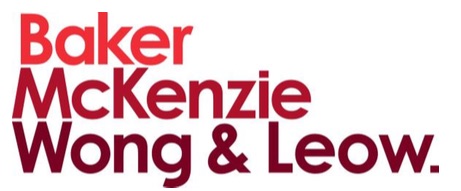3 April, 2019
Background
The Intellectual Property (Border Enforcement) Act 2018 (IPBE Act) was passed in the Singapore Parliament on 9 July 2018 and was assented to by the President on 2 August 2018. The IPBE Act implements a phased approach to fulfilling Singapore's obligations under the European Union-Singapore Free Trade Agreement (EUSFTA) and Singapore's commitment to enhancing its border enforcement measures. It will also provide Singapore Customs ("Customs") and intellectual property rights (IPR) holders with new and enhanced anti-counterfeiting powers.
The IPBE Act will include amendments to the Copyright Act (CA), Trade Marks Act (TMA), Registered Designs Act (RDA) and Geographical Indications Act (GIA).
For further background, please refer to our August 2018 and May 2018 newsletters which discussed the IPBE Act and the IPBE Bill respectively).
Commencement of the IPBE Act
The IPBE Act is undergoing a three-phase implementation timeline. The first phase came into force on 10 October 2018 and made amendments to the powers under the CA and TMA. The second phase, which focuses on enhancing and standardising the provisions in the CA and TMA, is scheduled to be implemented by 2019 when the EUSFTA is expected to come into force. The third phase, which focuses on changes to the RDA and GIA, is anticipated to come into effect within three years of the EUSFTA coming into force.
We set out below the key changes in each phase.
Phase |
Powers |
|
Phase 1: |
The Phase 1 amendments to the CA and TMA empower: |
|
Phase 2: |
The Phase 2 amendments to the CA and TMA are set to: |
|
Phase 3: |
The Phase 3 amendments to the GIA and RDA are set to: |
Impact of the IPBE Act on Anti-Counterfeiting
Previously, the anti-counterfeiting efforts by the Singapore Customs were hindered by difficulties in obtaining and providing IPR holders with the information necessary for instituting intellectual property infringement proceedings. However, the Phase 1 amendments have diminished the information asymmetry between infringers and Customs/IPR holders such that Customs and IPR holders are able to acquire necessary information, for example, the name and contact details of any person connected with the infringing goods, which will enable proper institution of proceedings.
The recent factual matrix of Louis Vuitton Malletier v Megastar Shipping Pte Ltd [2017] SGHC 2015 showcases the impact of the IPBE Act's Phase 1 provisions relating to the Singapore Customs' power to acquire information under the TMA.
For a detailed summary of this case, please refer to our December 2017 newsletter.
In this case, we represented one of the plaintiffs, in instituting trade mark infringement proceedings against a transhipping freight forwarder company, Megastar Shipping Pte Ltd (Megastar).
Louis Vuitton Malletier (LV), one of the other plaintiffs in the action, had notified Customs of its objection against the importation of suspected infringing goods from China to Batam via Singapore. The Singapore Customs subsequently intercepted and seized containers of counterfeit goods, of which Megastar was designated as the consignee. These counterfeit goods were found to be bearing infringing trade marks from various brands, including our client's marks. Customs proceeded to detain the counterfeit goods on its own volition.
In its decision, the High Court deemed Megastar to be neither the importer nor exporter of the counterfeit goods. Thus, Megastar was not held liable for trade mark infringement. At the time of this decision, Customs did not have the power to acquire information in relation to the seized goods. If they had this power that has recently been implemented under the Phase 1 amendments, the IPR holders could have obtained further information about the involved parties and potentially obtained a more favourable outcome by commencing infringement proceedings against the most relevant parties.
This case reflects the importance of Customs' power to acquire information on seized goods. In a global supply chain, the identities of parties involved and the nature of the transactions are at times difficult to ascertain. This was a pertinent problem in this case, where the shippers could not be located, the nature of the relationship between the shippers and the company in Batam was unclear, and the issue of whether the company in Batam had any further obligations to anyone else in Indonesia was unresolved. While this case took place before the introduction of the IPBE Act, it was fortuitous that the timing of this case presented an opportunity for it to be considered as part of the IPBE Bill, which ultimately culminated in the IPBE Act.
It is important to note that if this case involved infringing exports instead of imports, Customs would not have had the power to intercept and seize the counterfeit goods on the request of the IPR holders.
Currently, there is a lacuna in the law where IPR holders may only request Customs to seize suspected infringing imports. Fortunately, the Phase 2 amendments will address this lacuna and allow IPR holders to provide notice to Customs in relation to both export and import of infringing goods once they are in force.
Actions to take
With the recent Phase 1 amendments, companies should bear the following in mind if any of their trademarks are the subject of an importation or exportation of counterfeit goods that are subsequently seized or detained by Customs:
- Customs have the power to acquire information from relevant persons who they reasonably believe might have any information/documents relevant for the IPR holder to institute intellectual property infringement proceedings against relevant parties in relation to seized imports.
- IPR holders have the right to acquire from Customs, the names and contact details of any person connected with the detained imports/exports necessary for instituting intellectual property infringement proceedings against relevant parties.
Companies should note that information may only be disclosed only after the goods have been seized and IPR holders have provided Customs with a security deposit and supporting documents evidencing their IPR rights.
For further information, please contact:
Andy Leck, Principal, Baker & McKenzie.Wong & Leow
andy.leck@bakermckenzie.com





